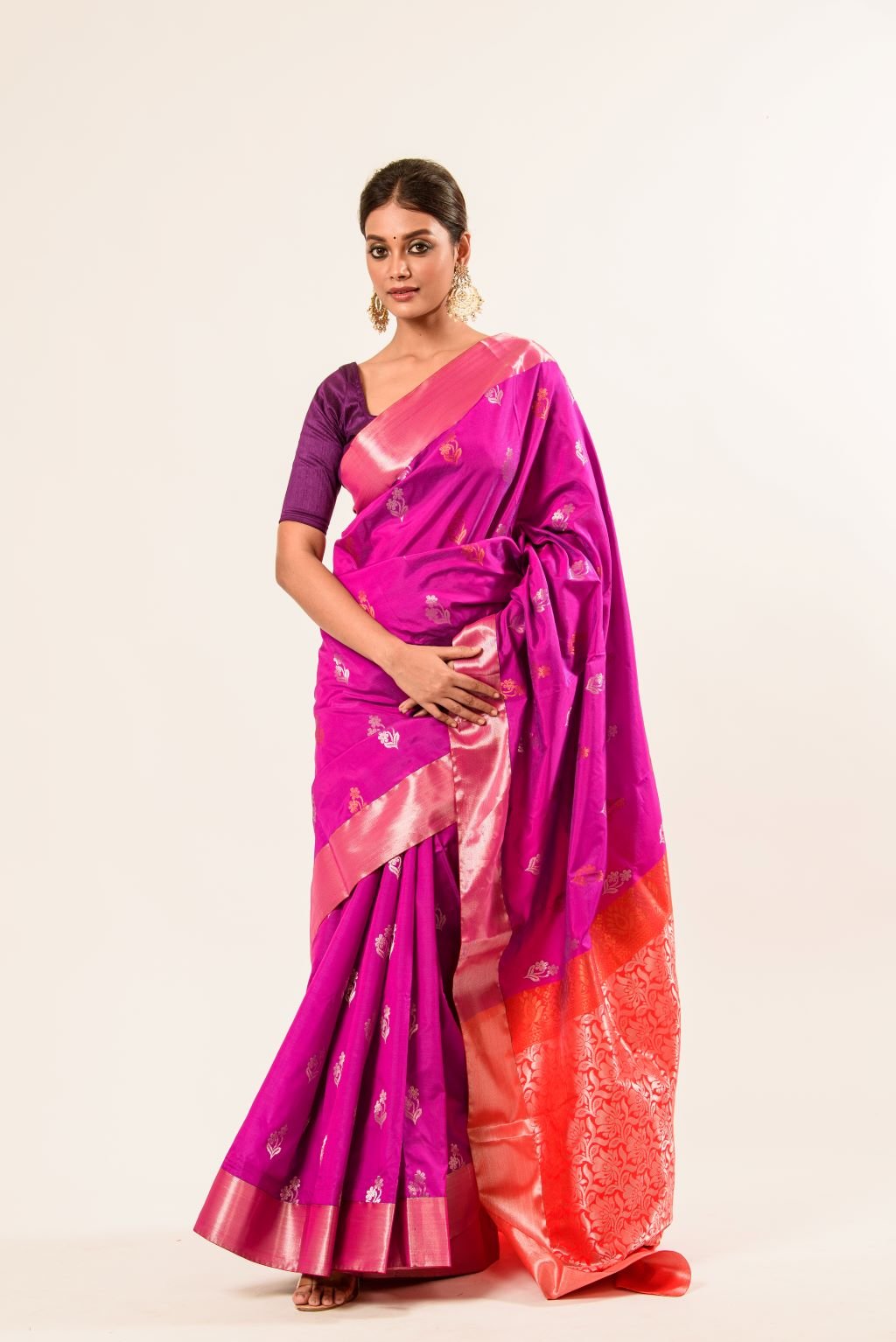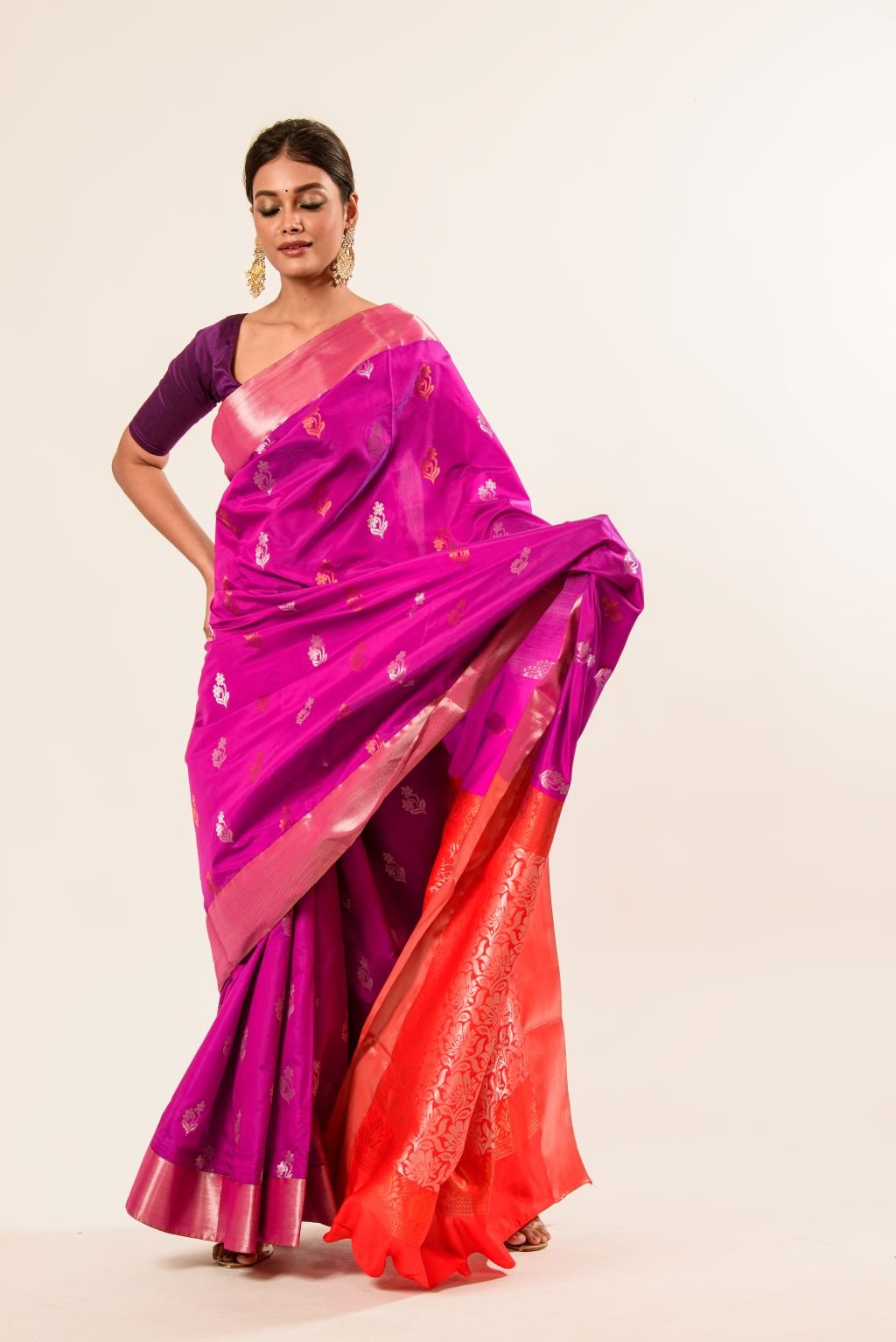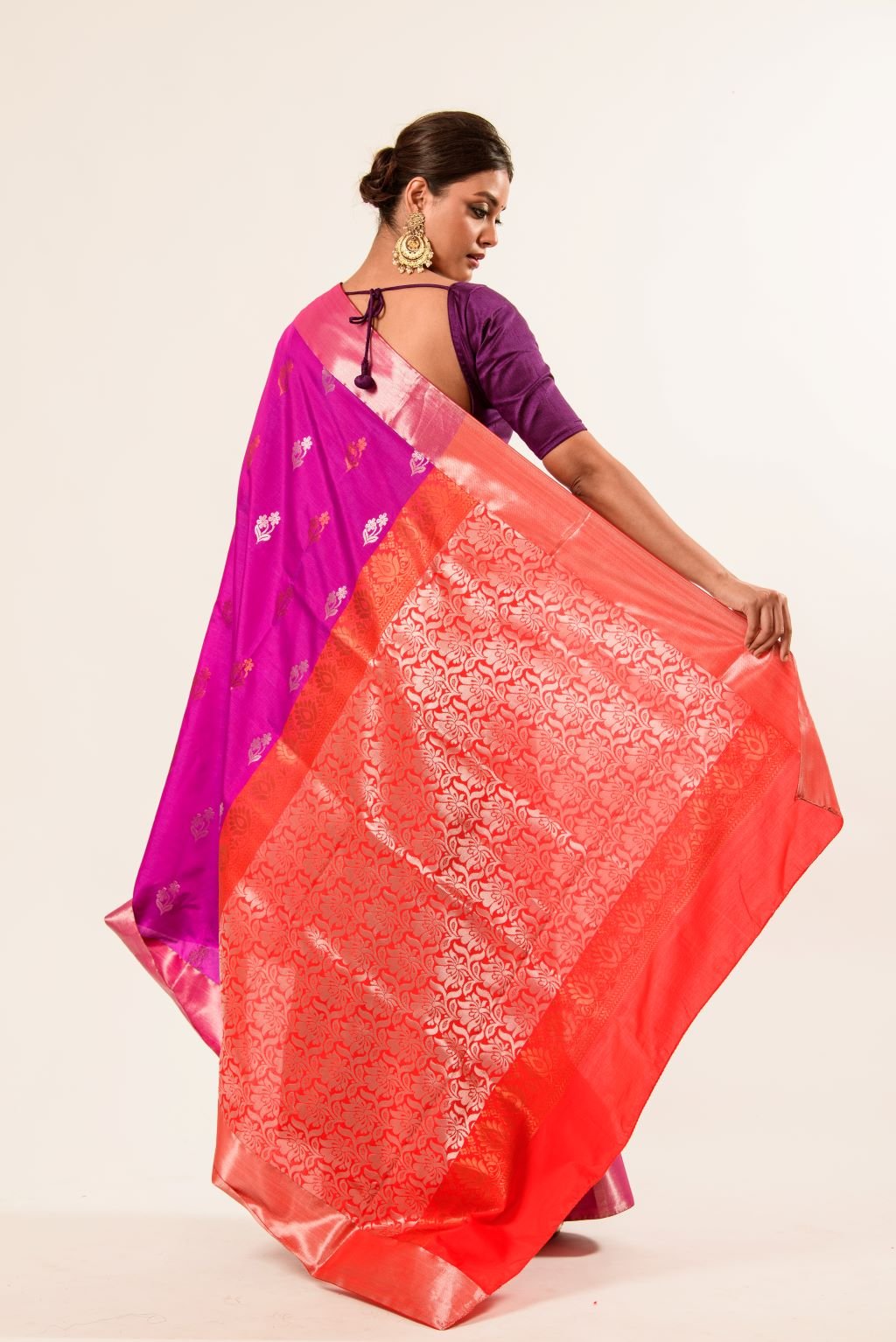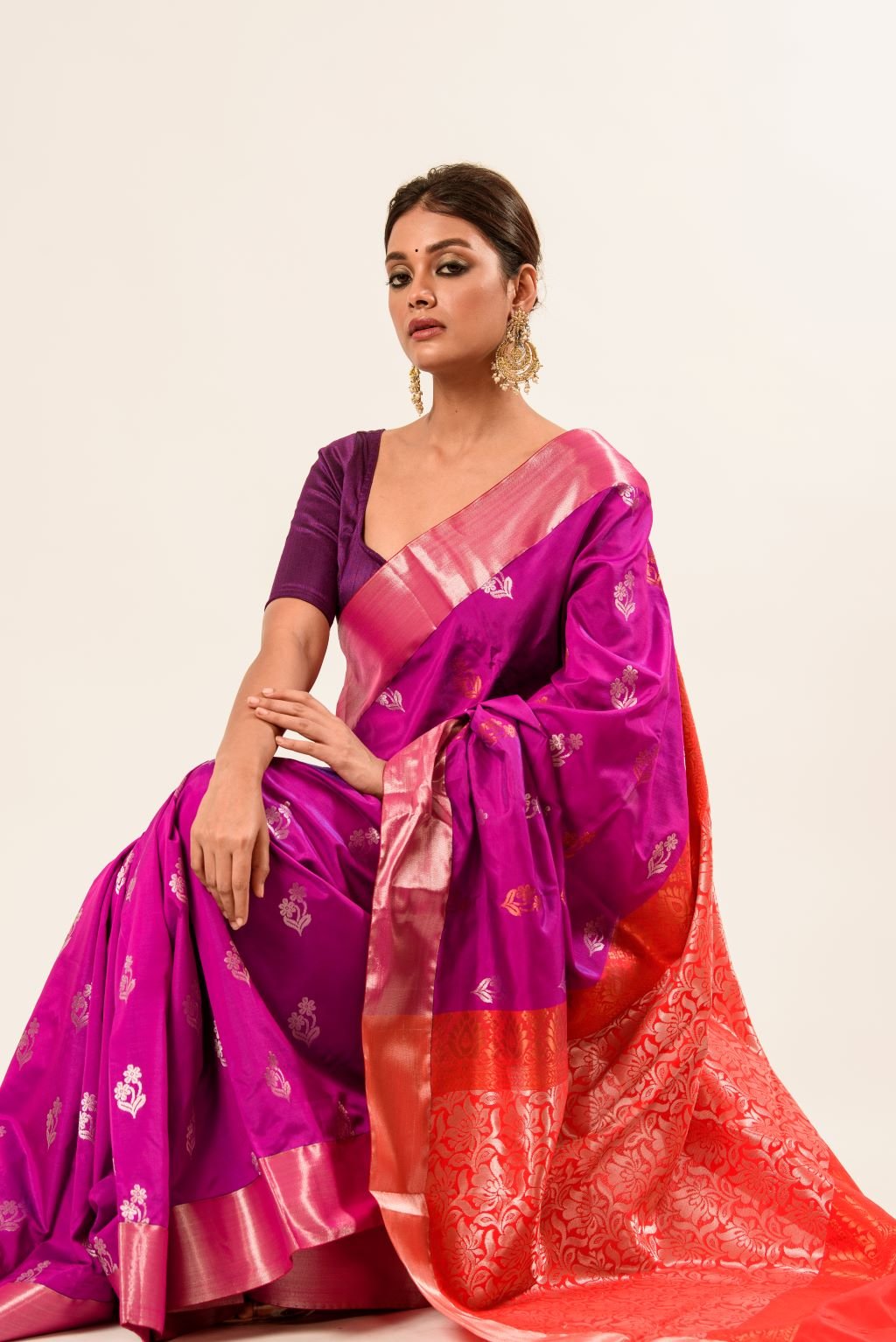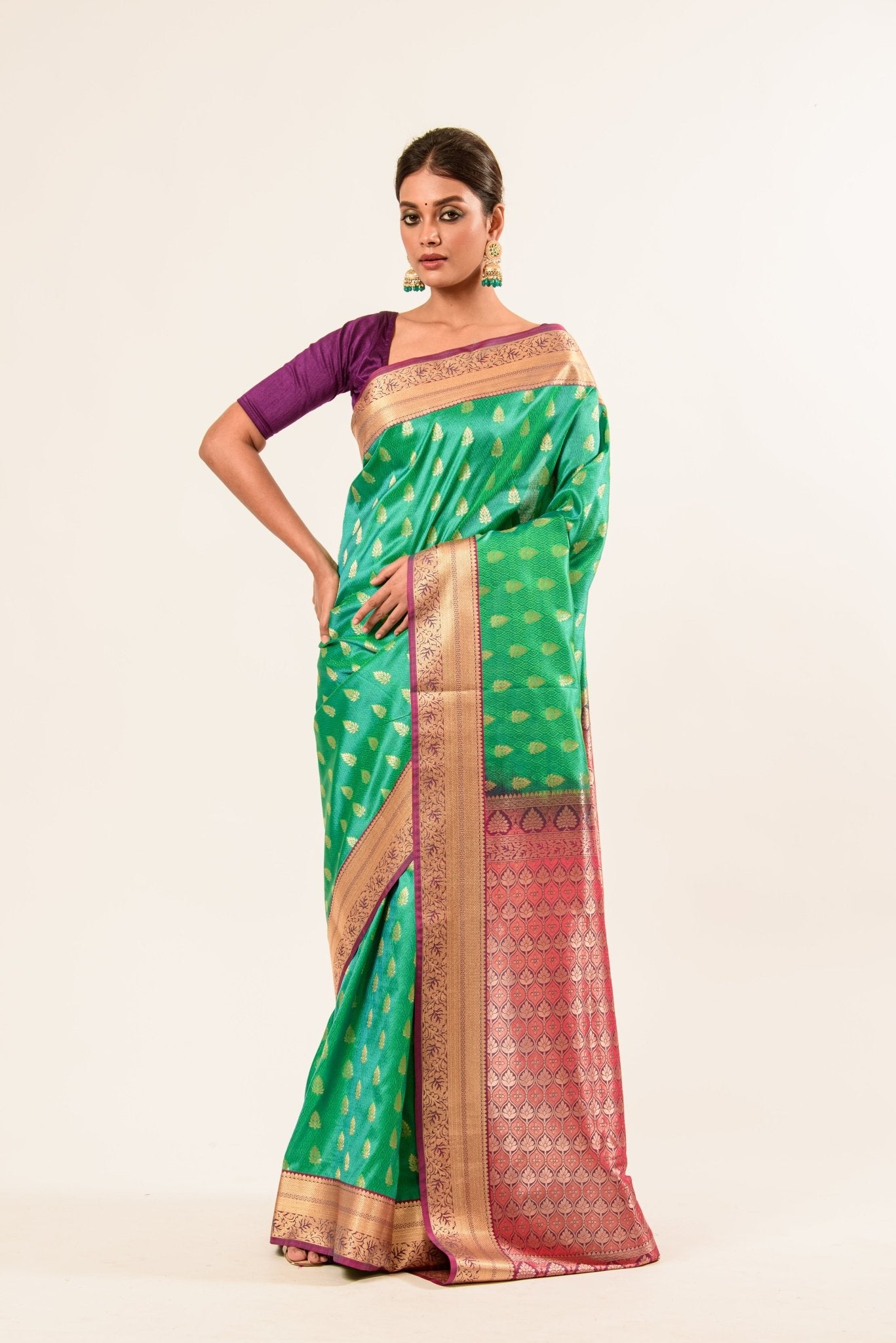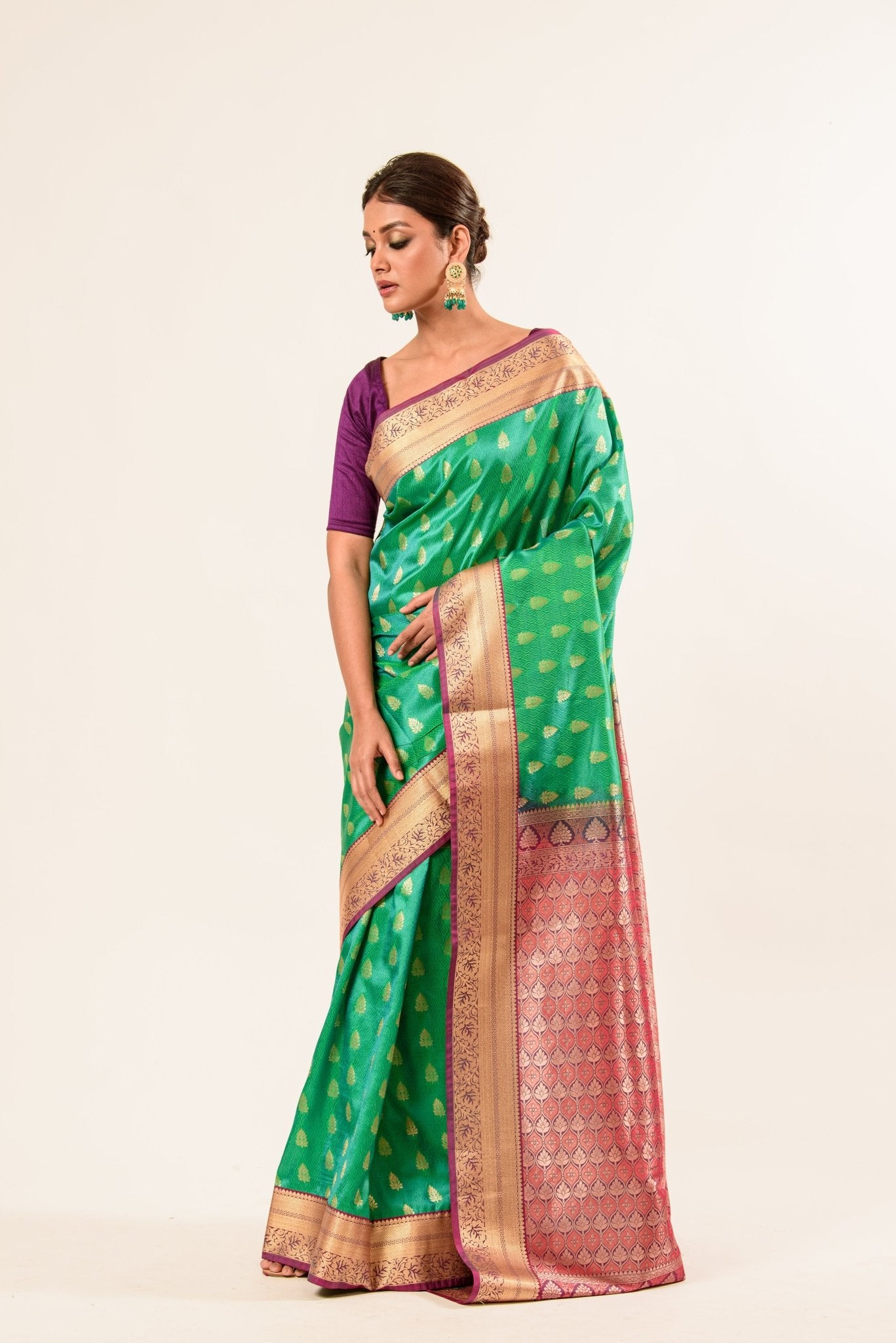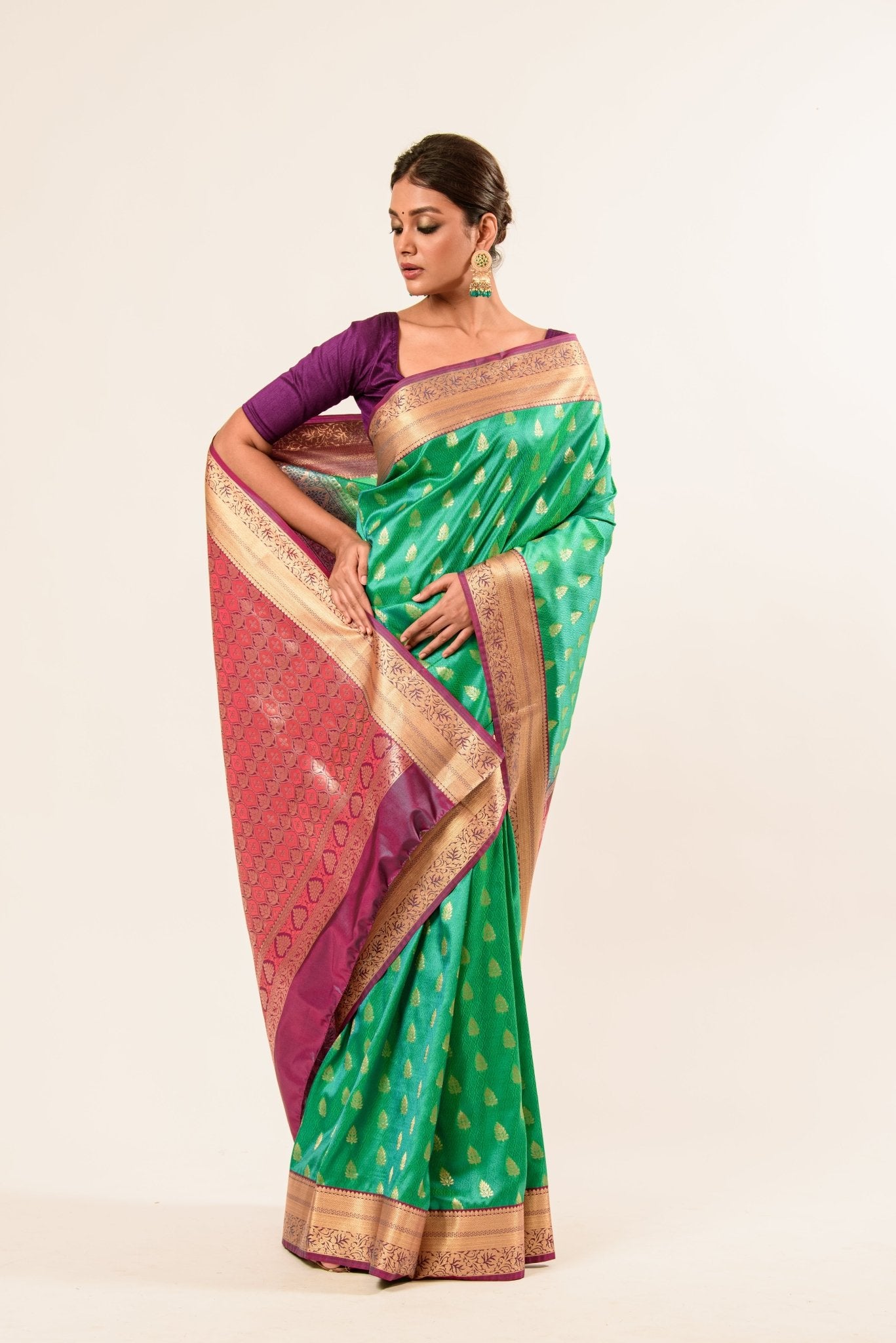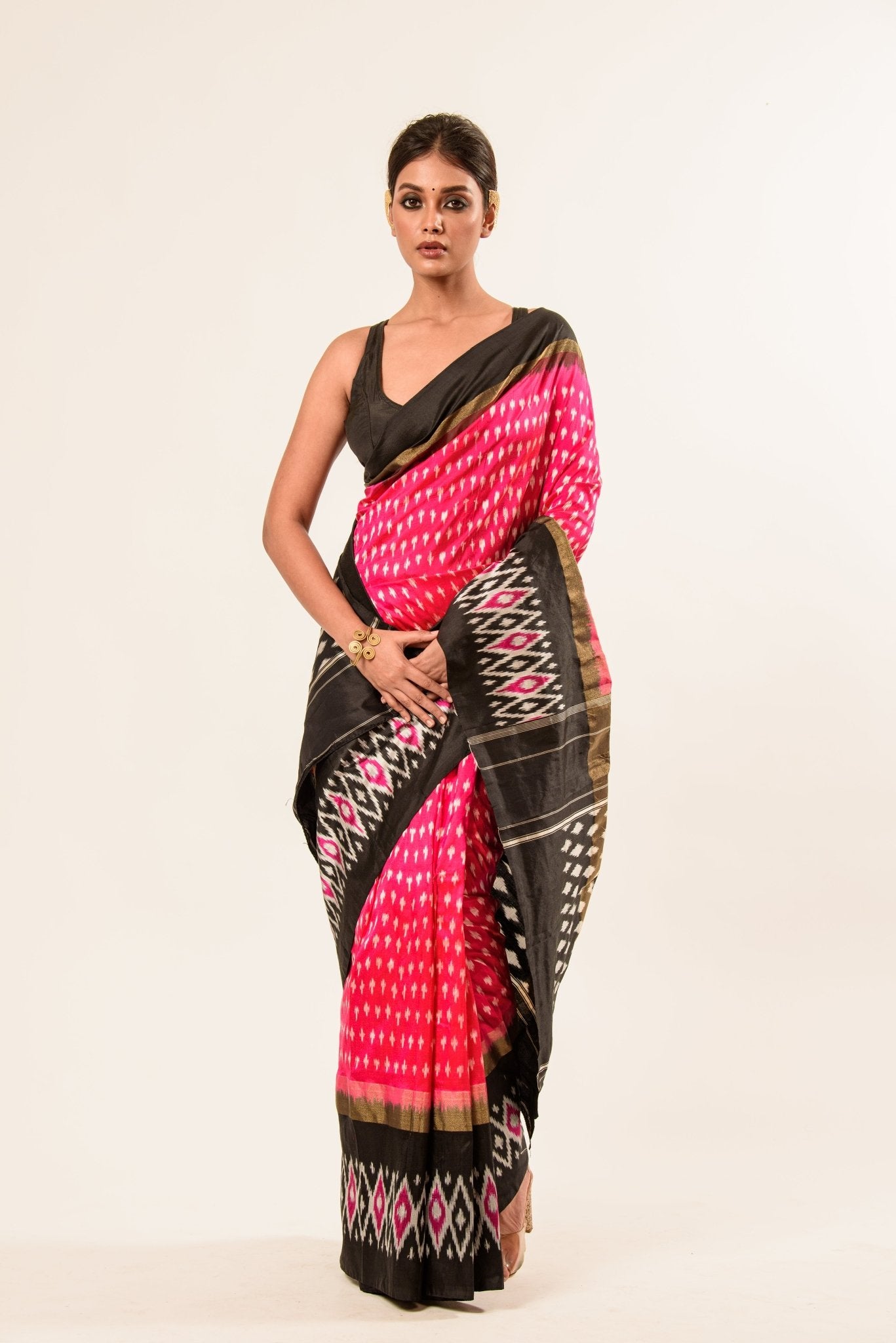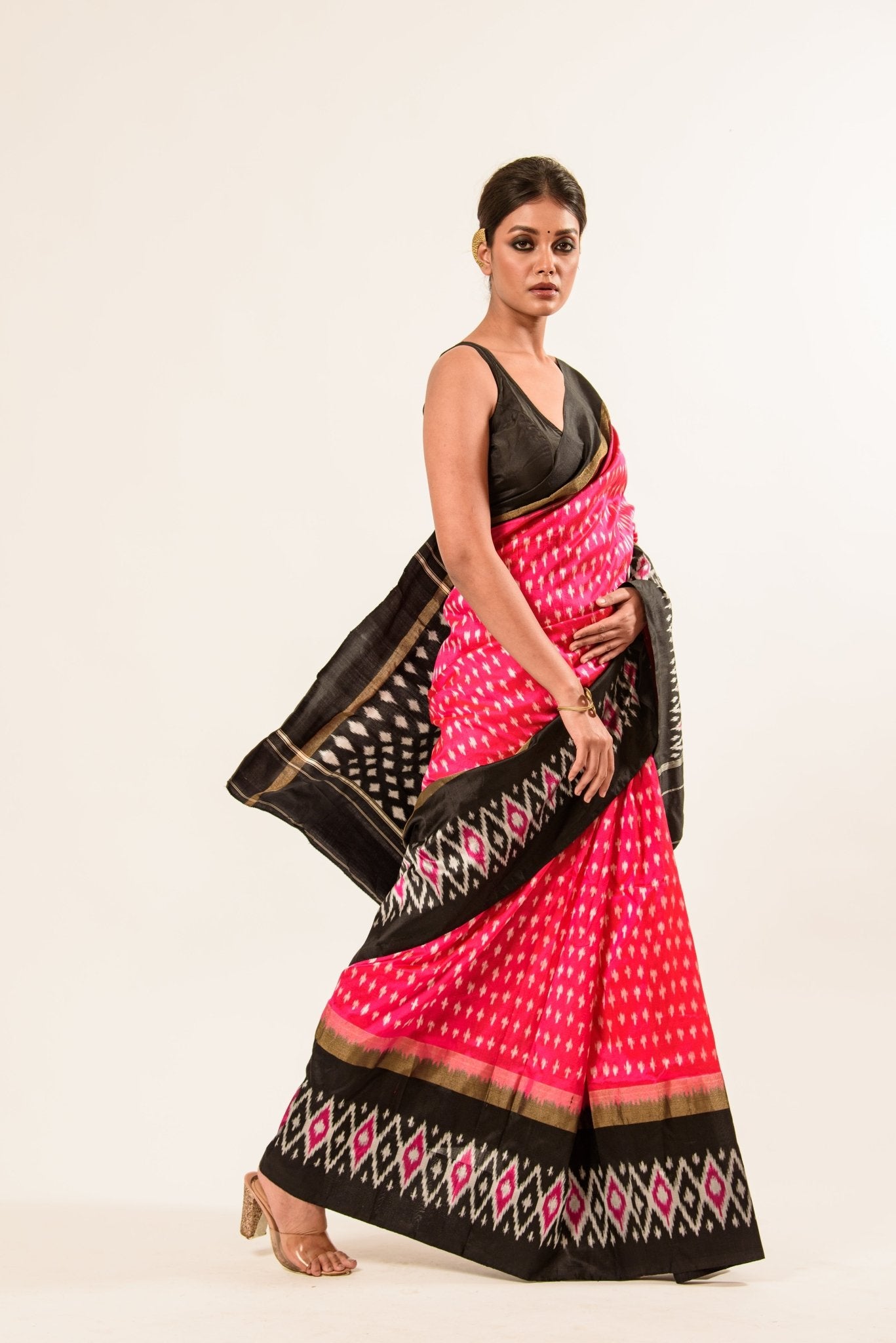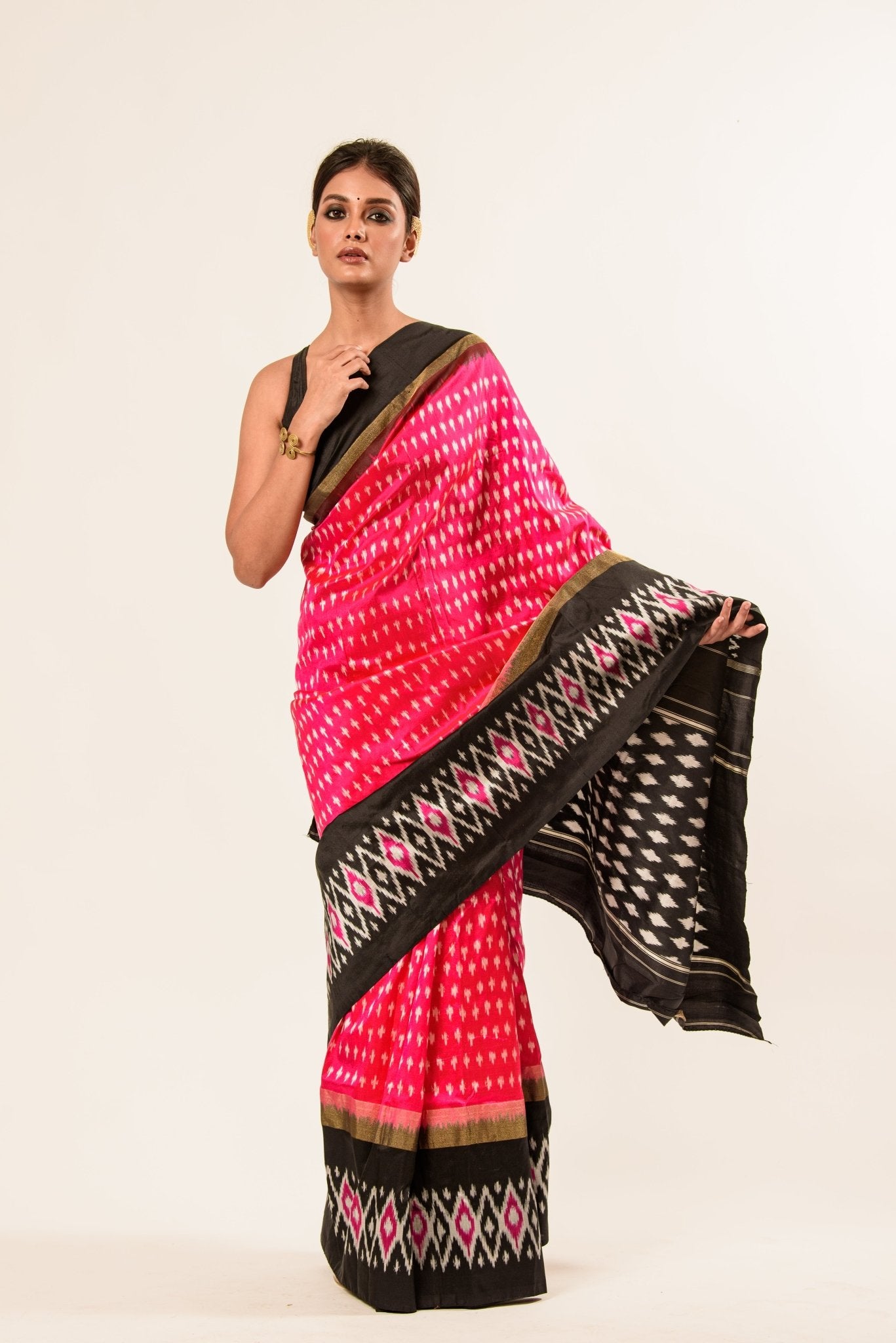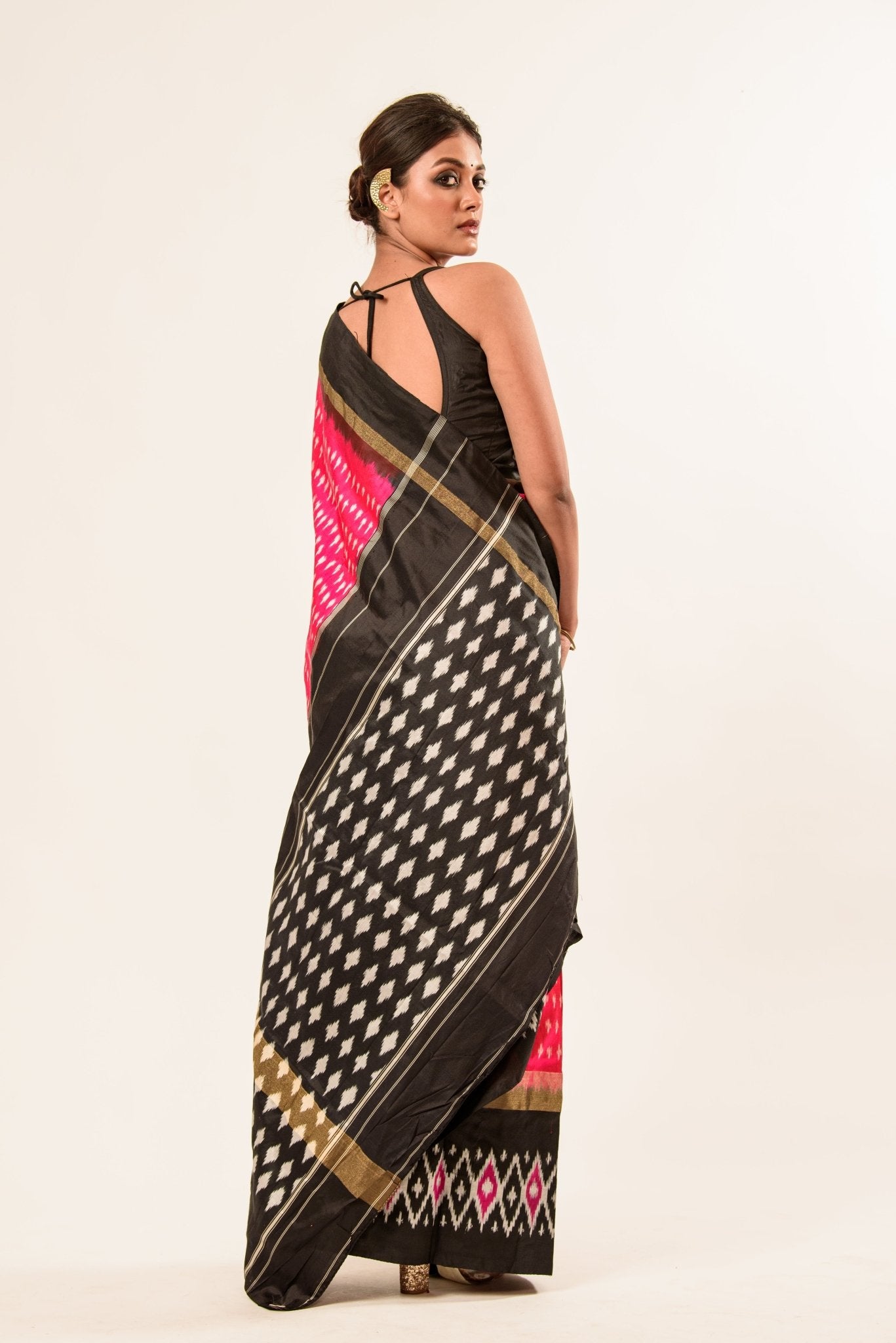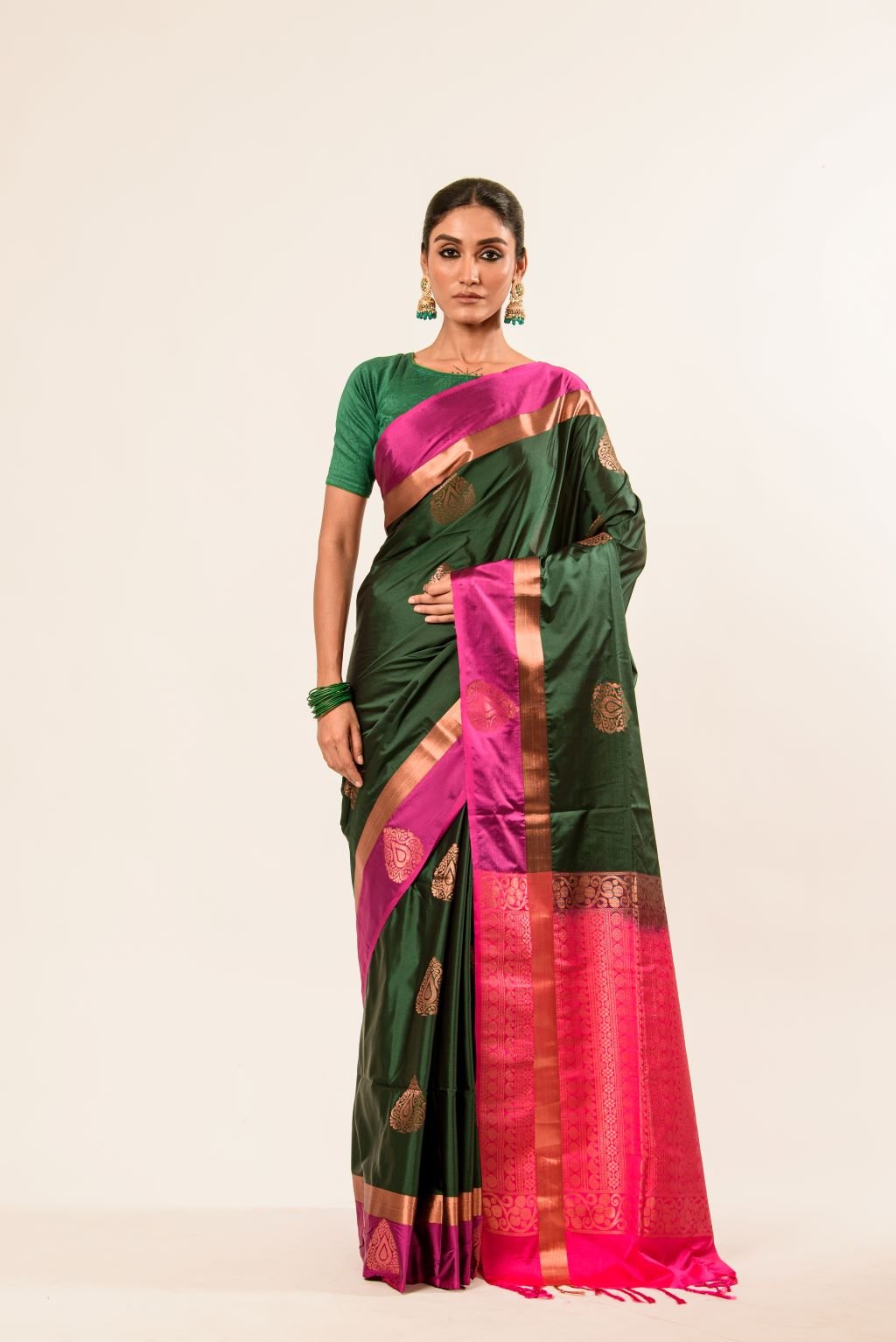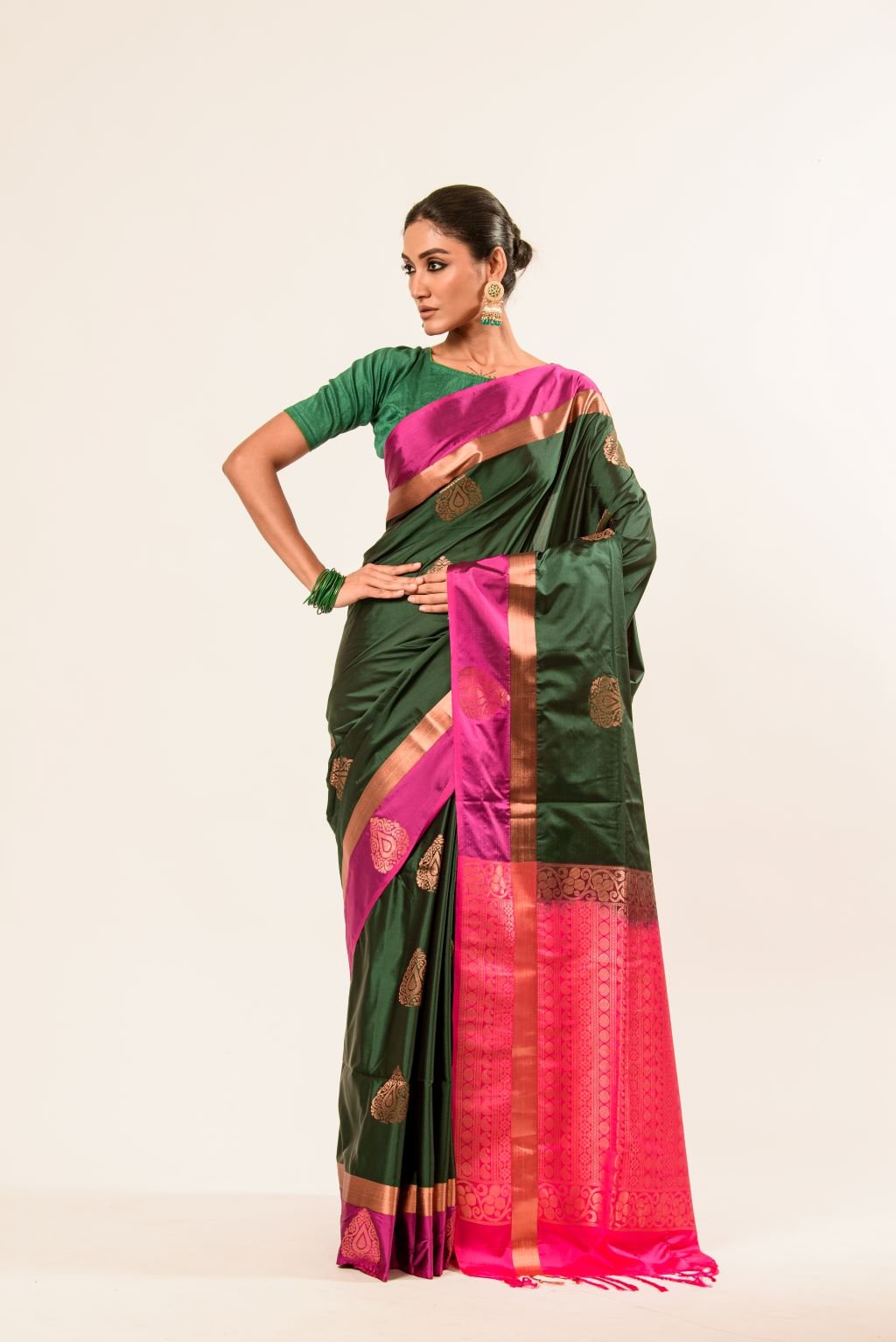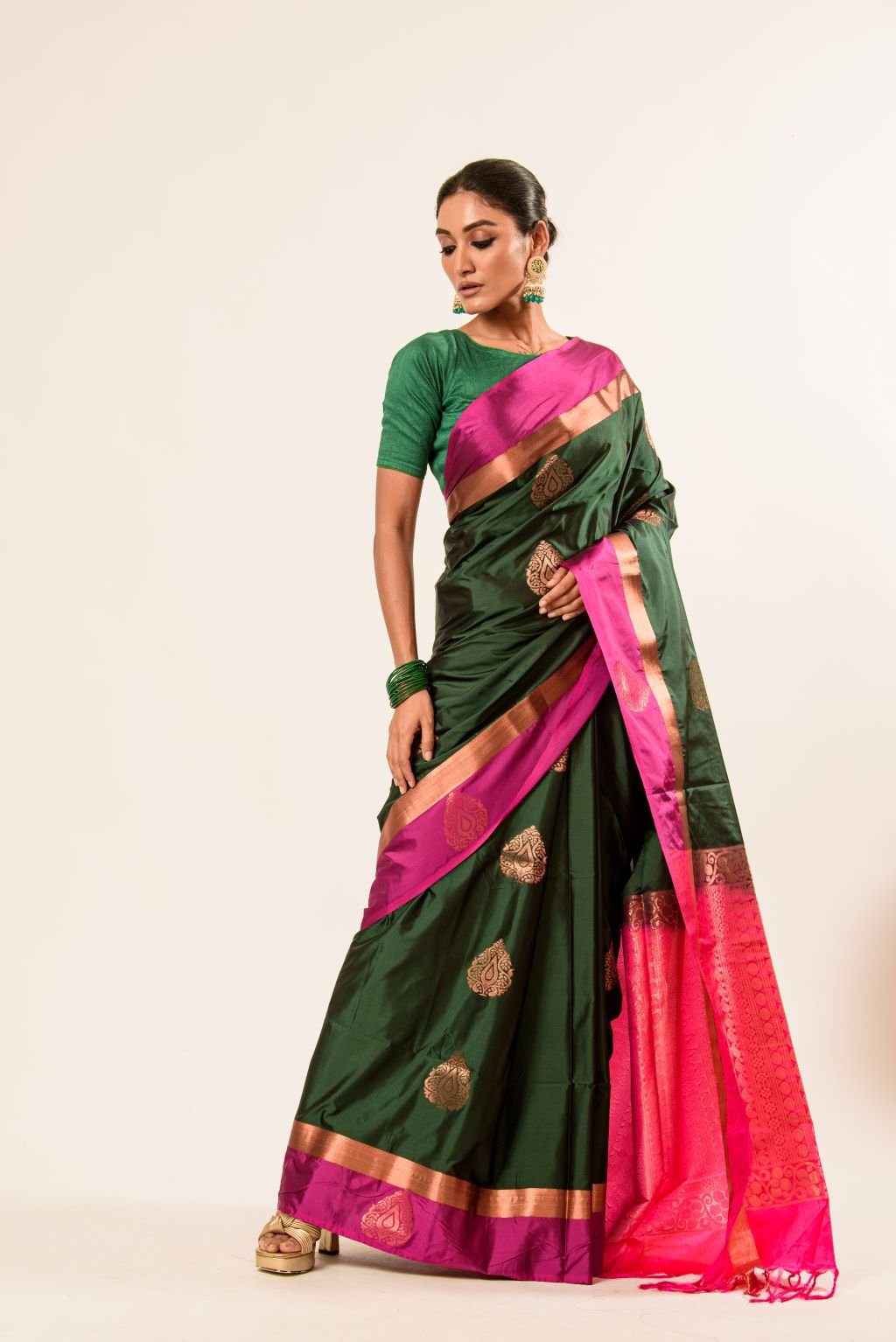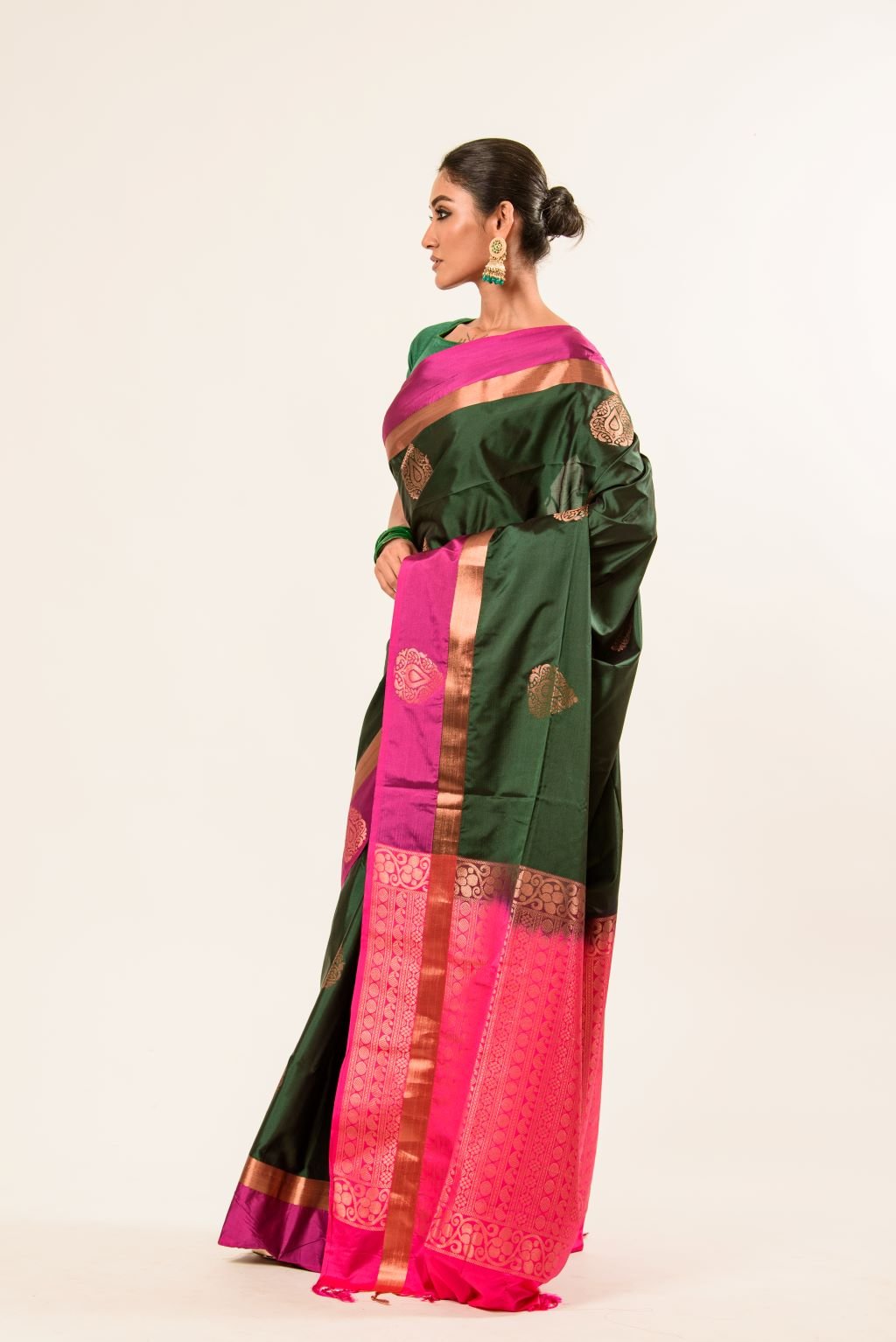Undeniably, Banarasi sarees are a trademark of luxury, culture, and craftsmanship in the Indian realm. With their exquisite weaving, rich silk fabric, and gold or silver zari work, the sarees have been a part of the bridal trousseau for centuries. These sarees are so elegant that no other wear can possibly rival it as their traditional charm stands intact. Be it weddings, a Banarasi saree stands out for brides who desire an infusion of tradition with modern style.
Bridal Banarasi Saree Designs to Blend Tradition with Modern Elegance.
Pastel Banarasi Saree
While the classic red, maroon, and gold Banarasi sarees have been always in vogue in bridal designs, modern brides are increasingly opting for softer, subdued tones such as pastels. These pastel Banarasi sarees are gaining popularity amongst brides who are looking for something different than the time-honored brilliant colors. Preferably, light pinks, mint greens, powder blues, lavender, and peach. Such colors bring delicate and ethereal charm to the bridal ensemble.

Red Banarasi Saree with Rupa Zari Border
Red is the quintessential bridal color in Indian weddings. It symbolizes love, prosperity, and fertility. The red Banarasi saree is a classic choice for brides, but the modern version incorporates refined elements that elevate the traditional look. It is a modern, contemporary version of a classic red saree, with the addition of a rupa zari border. Rupa zari is finer and softer than the regular gold zari, but it gives the saree a subtle metallic sheen without overpowering the deep base. The intricate motifs and patterns interwoven into the fabric give a majestic look that suits brides who still want to maintain the traditional red but do not want to be loud or garish

Jaal Work Banarasi Saree
Jaal work is one of the most intricate and sought-after designs within Banarasi sarees. From the Mughal era jaal, a word that refers to "net" or "lattice" comes in delicate details where it becomes a complex pattern in the saree. The traditional work of gold and silver zari was earlier made; now it passes through new modes better suited for the present bridal taste. If the bride wants the look extravagant yet classy, then the Jaal work Banarasi saree is absolutely apt for them. The saree is usually heavy with dense zari work in the form of motifs like vines, florals, and paisleys. The whole fabric carries a beautiful textured pattern.

Satin Silk Banarasi Saree
Satin silk lends a modern look to the traditional Banarasi saree. It inherits the fine texture, glossy finish, and lavish feel associated with silk. At the same time, it blends silk luxury with a sleek polish. Satin silk saree fabric has increasingly been used with bridal Banarasi sarees to style the old basic saree in a new context. Typically, satin silk Banarasi sarees combine the classic weaving techniques with a modern, minimalist design. The dense texture of satin silk is rich and perfect to push forward the intricacy of zari work. Hence, this makes it an ideal background for contemporary embroidery or motifs. Satin silk Banarasi sarees are traditionally found in riotous, rich colors like royal blue, deep red, emerald green, or gold, which maintain the grandeur due from a bridal saree.

Georgette Banarasi Saree
Georgette sarees has become a recent favorite among contemporary brides owing to its lightness, fluidity, and effortless drape. Georgette Banarasi sarees merge the age-old craftsmanship of Banarasi weaving with this semi-translucent, lightweight fabric. These are the perfect picks for the brides who want the feel of Banarasi silk but do not want to carry the weight and heaviness of traditional Banarasi silk sarees. A Georgette Banarasi saree holds intricately done embroidery or zari work but with the overall effect more subtler and minimalist as compared to the heavier Banarasi silk sarees. Georgette saree is so soft that it creates a better liquid movement, and thus it's much easier to drape and carry through the day. Georgette Banarasi sarees can easily be found in soft, pastel shades or vibrant colors such as coral, teal, and maroon, which allows for a modern outlook without sacrificing the old-world appeal of traditional Banarasi patterns.

Katan Silk Brocade Banarasi Saree
Katan silk is one of the varieties that has a great reputation for being extremely fine, smooth and very lustrous. This weaving technique gives it a luxurious, royal look with great appeal for a modern bride looking to add the richness of Banarasi weaving into her wedding attire. Katan silk brocade Banarasi sarees would be suitable for traditional motif-loving brides who would love something in lightweight comfort. These sarees come in intricate woven brocade patterns that may include the patterns of peacocks, florals, and paisleys in gold or silver zari. This exquisite effect creates sheer magnificence to make the bride look regal with style while enhancing the rich feel of the Katan silk and the grandeur of brocade weaving.

Conclusion
In the fray of choosing a saree for a wedding, modern brides always seek that touch which makes their bridal saree stand out as a great and contemporary take on a classic, and these six Banarasi saree designs may be just what they need. These Banarasi sarees attribute the brides the glamour of being bold in modernity while not forgetting their tradition. The sarees adorned with such exquisite fabrics, delicate zari work, and intricate patterns are perfect to exude a statement of elegance or luxury while providing comfort for brides.
Shop Sarees By Colour
| Saree Color | Ideal Occasion |
| Red Sarees | Weddings, Engagements, Karva Chauth, Festivals |
| Green Sarees | Mehndi Ceremonies, Traditional Puja, Eco-themed Events |
| Grey Sarees | Contemporary Gatherings, Office Parties, Subtle Elegance for Day or Night |
| Yellow Sarees | Haldi Ceremonies, Daytime Functions, Spring Events |
| Pink Sarees | Baby Showers, Birthday Parties, Romantic Dinners |
| Blue Sarees | Evening Parties, Corporate Events, Receptions |
| White Sarees | Temple Visits, Traditional Ceremonies, Peaceful Gatherings |
| Black Sarees | Cocktail Parties, Formal Events, New Year Celebrations |
| Orange Sarees | Navratri, Religious Events, Cultural Gatherings |
| Purple Sarees | Engagements, Festive Celebrations, Theme Parties |
| Peach Sarees | Summer Weddings, Brunches, Casual Daytime Gatherings |

